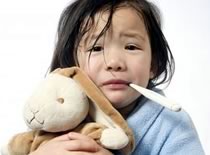As a father of two school aged kids that are always getting sick with whatever sickness is going around the school I am always concerned about medications for the kids. The FDA came out with a top 10 list of things to think about when giving meds to kids.
10 Tips for Medicine and Sick Kids
 When it comes to taking medicines, kids aren’t just small adults. When using nonprescription medicines, here are 10 ways to be sure you’re giving your children the right medicine and the right amount.
When it comes to taking medicines, kids aren’t just small adults. When using nonprescription medicines, here are 10 ways to be sure you’re giving your children the right medicine and the right amount.
- Read and follow the label directions every time. Pay special attention to usage directions and warnings. If you notice any new symptoms or unexpected side effects in your child or the medicine doesn’t appear to be working, talk to your doctor or pharmacist immediately.
- Know how much medicine to give and when. Read and follow the label.
- Know the abbreviations for tablespoon (tbsp.) and teaspoon (tsp.). You should also know: milligram (mg.), milliliter (mL.), and ounce (oz.).
- Use the correct dosing device. If the label says two teaspoons and you’re using a dosing cup with ounces only, don’t guess – get the proper measuring device. Don’t substitute another item, such as a kitchen spoon.
- Never play doctor. Twice the recommended dose is not appropriate just because your child seems twice as sick as last time. When in doubt about your child’s condition, call your doctor.
- Talk to your doctor, pharmacist, or other health care professional before giving two medicines at the same time to avoid a possible overdose or an unwanted interaction.
- Follow age and limit recommendations. If the label says don’t give to children under a certain age or , don’t do it. Call your doctor.
- Always use the child-resistant cap and re-lock the cap after each use. Be especially careful with iron-containing vitamins or supplements, which have been a source of accidental poisoning deaths in children under three.
- Follow the “KEEP OUT OF REACH” warning. Today’s medicines are often flavored to mask the taste of the medicine, which is all the more reason to keep all drugs out of the sight and reach of children.
- Always check the package and the medicine itself for signs of tampering. Don’t buy or use any medicine from a package that shows cuts, tears, slices, or other imperfections. Report anything suspicious to the pharmacist or store manager.
I know that most of this list is obvious but there are other things to think about as well and that is taste (as listed above) and drug interactions (Ibuprofen, Aspirin, Acetaminophen)
Aspirin – Never give aspirin to kids as it can cause problems like Reyes syndrome. Baby aspirin as we have all heard of is not actually for babies but is actually just a small aspirin for adults.
Acetaminophen – is fine for kids to treat pain or a fever but is not good for too long. Make sure that you are dosing right as it can be hard on the kids liver if you give them too much.
Ibuprofen – is fine also for kids although again watch the dosing as it can be a problem as well if you exceed the dose
Finally it is critical not to mix the Acetaminophen and Ibuprofen with kids, or even with adults for that matter as these pain relievers can cause serious health problems when mixed together.
I think mostly for kids when they are sick the most important thing is to make sure that they sleep, have a warm bath if they are cold and a cold compress on their head or neck and a cool bath if they are hot. And always make sure they take in lots of liquids. Although kids are really good at letting you know how they feel (mine are anyway) they usually get over colds and the flu pretty quickly and easily.



